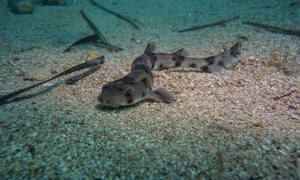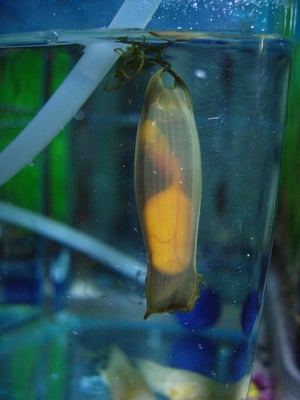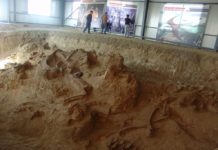Life after death: how we hatched live shark pups from dead parents
Lauren Smith
Six years ago, researchers asked a radical question: could eggcases taken from trawler-caught sharks still hatch live, healthy young?
Back in December 2012, I met up with Greg Nowell, co-founder of Sharklab-Malta, a non-profit NGO founded in 2008. Sharklab collaborates with shark researchers on a global and local scale, with an overall mission to highlight the current plight of sharks in our oceans whilst increasing awareness and education of the public.
Greg was interested in my experience working with neonate small spotted catsharks (Scyliorhinus canicula) and the greater spotted catshark (Scyliorhinus stellaris); in the UK these are usually known as the lesser spotted dogfish and bull huss, respectively. At Macduff Marine Aquarium I’d worked with both species, as well as on the maintenance of viable eggcases, which resulted in successful hatching and rearing of shark pups.

Successfully hatched out bull huss ( Scyliorhinus stellaris) pup ready for release. Photograph: Rasmus Loeth Petersen.
Greg was interested because earlier in 2012 he had started going to the wholesale fish market in Valetta to recover eggcases from dead S. canicula and S. stellaris that had been trawl-captured in the Mediterranean. He had been placing the eggcases in a home aquarium system to see if they were viable and, if so, to observe development.
A study by Ballard et al in 1993 had shown that viable eggcases could be removed from dead S. canicula, but the embryos in used purely to observe development. Greg’s idea was to take this further: allow the sharks to hatch, rear them for a few months to ensure they were feeding well and then release them back into the wild.
In my opinion, this was one of the best, most direct and novel hands-on approaches to shark conservation I had come across. Not only did it result in a positive outcome from the result of direct action but the potential for public engagement for this type of project was huge.
Greg’s preliminary work in 2012 soon expanded with the recruitment of Lydia Koehler as science officer, Pamela Mason as education coordinator and Dave Mason as membership coordinator. All three, plus numerous volunteers, were (and still are) involved in eggcase recovery and retrieval from the fish market. This, combined with the aquaria maintenance and shark husbandry information I supplied, all coincided with the opening of the Malta National Aquarium in October 2013.
A collaboration was soon formed between the aquarium and Sharklab, which meant that optimal hatchery tanks were available on a larger scale. It also meant information about the project could be displayed at a public attraction, thus reaching a larger audience and spreading further awareness about sharks and their conservation.











